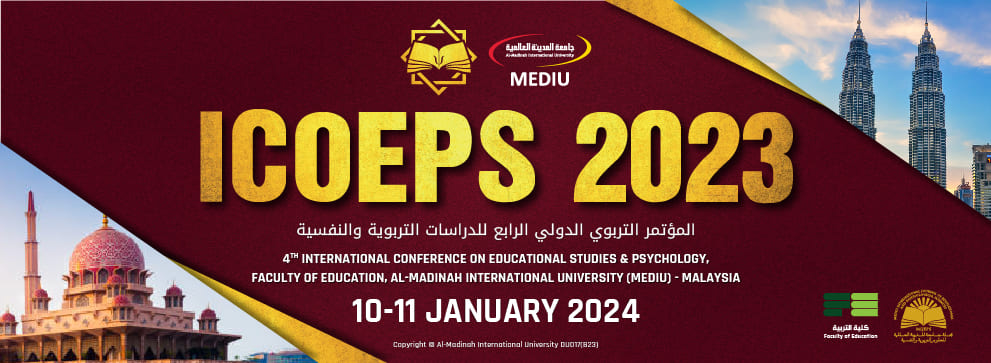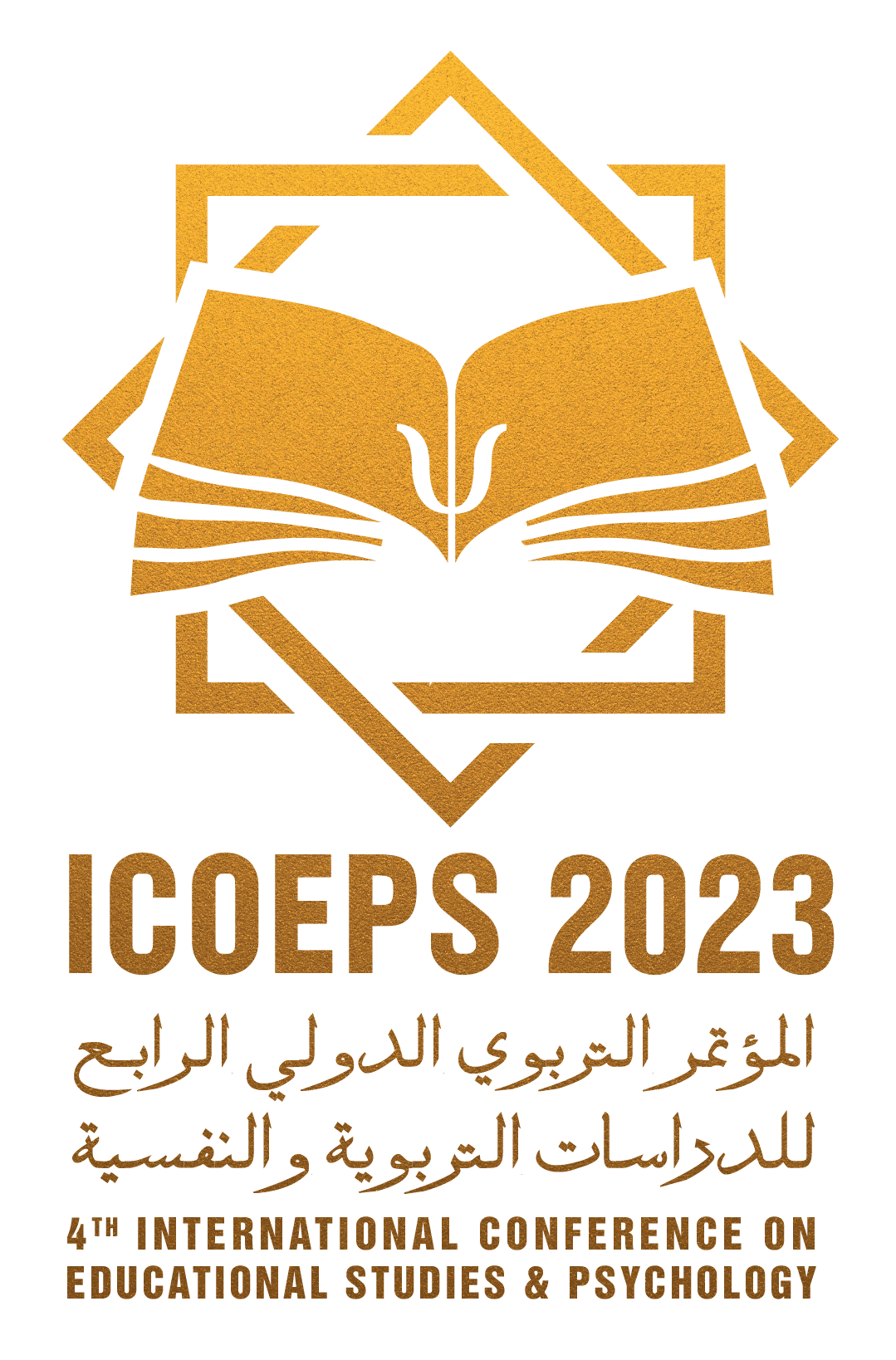Skip to content

- Foundations of Education:
-
- Islamic Identity and its educational requirements in the 5th Industrial Revolution.
- Professional Learning Societies for the teacher and the learner in the 5th Industrial Revolution.
- Local and international experiences to prepare future educational personnel.
- Governance of educational Institutions.
- Educational quality systems and teacher preparation institutions for the 5th Industrial Revolution.
- Modern trends in teacher preparation and professional development in the 5th Industrial Revolution.
- Recent trends in contemporary educational administrative thought.
- Educational planning and development of learning outcomes.
- Distance education systems and standards in the 5th Industrial Revolution.
- Contemporary experiences and expertise in achieving comprehensive quality in education.
- Intellectual and cultural challenges facing the contemporary educational system from the 5th Industrial Revolution.
- Curriculum and instruction:
-
- Contemporary global trends in designing and developing curriculum.
- Curriculum and Teacher Development Institutions in the 5th Industrial Revolution.
- Contemporary insights into Modern Teaching Approaches
- Curriculum analysis and evaluation methods.
- Outcome-based learning.
- Curriculum and methods of teaching foreign languages as a second language.
- Entrepreneurship and Educational Curriculum.
- Strategies for self-learning and individualization of education.
- Educational psychology:
-
- Contemporary intellectual theories and trends in psychology and their educational applications in the 5th Industrial Revolution.
- Educational and psychological counselling and its role in supporting the educational process in the 5th Industrial Revolution.
- Measuring and evaluating cognitive, skilful and emotional learning outcomes.
- Recent trends in developing creativity, innovation and nurturing the talented.
- Contemporary visions in studies of people with special needs
- Counselling and psychological services for the learner.
- Motivation, attitudes and inclinations and their effects on teaching and learning.
- Mental health and its relationship to educational fields.
- Measuring and evaluating the learner’s personality traits.
- The theory of multiple intelligences and its educational applications.
- Electronic measurement and evaluation in teacher preparation institutions.
- Artificial intelligence and its role in improving educational institutions in the 5th Industrial Revolution.
- Teacher preparation, psychological problems, and potential human side effects of the 5th Industrial Revolution.
- Educational Technology:
-
- The technological revolution and its educational horizons.
- Modern trends and strategies in e-learning.
- Challenges facing e-learning.
- Quality controls and standards in e-learning.
- Uses of artificial intelligence in the preparation of educational programs and software production.
- Recent trends in the preparation and design of educational aids and technologies.
- Electronic professional development for teachers in the light of the data of the digital age.
- E-learning technology and its virtual environments.
- Digital empowerment of the teacher and the learner.
- Social networks and their role in strengthening teacher preparation institutions in the 5th Industrial Revolution.
- Teacher and learner skills in the digital age.
- Security and confidentiality of information in educational institutions in the 5th Industrial Revolution.

